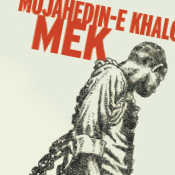UB Publishes Monograph on Iranian Politics
Category: WebExtras

Ivan Sascha Sheehan; photography: Chris Hartlove
We wanted a better understanding of the complicated forces at work in Iran, so we asked Ivan Sascha Sheehan, assistant professor in the College of Public Affairs’ School of Public and International Affairs, for additional insights into the major players and for his own take on the issues surrounding Iran’s nuclear program.
Q: How did you meet Ambassador Lincoln P. Bloomfield Jr. and what impressed you about him?
A: I first met Ambassador Bloomfield in spring 2012 when we appeared on a panel together at George Mason University alongside Professor Alan Dershowitz of Harvard Law School and former U.S. Attorney General Michael Mukasey.
The panel addressed U.S. policy toward Iran in the context of the multilateral nuclear negotiations designed to curtail Iran enrichment of uranium to weapons-grade levels. Among the issues discussed at the event were the Iranian regime’s deplorable human rights record; its longstanding campaign of state-sponsored proxy violence; and the options available to U.S. policymakers seeking to promote peaceful, democratic change in Tehran.
I was struck by Ambassador Bloomfield’s nuanced understanding of U.S. foreign policy with Iran and his belief that the human consequences of a failure to act responsibly required additional treatment.
Q: What would you advise Congress to do regarding Iran’s nuclear program?
A:
-
Pass the Nuclear Weapons Free Iran Act. The lifting of sanctions gave life to an Iranian regime suffering from political and economic isolation and internal discontent. Parliamentary maneuvers and White House opposition should not get in the way of bipartisan legislation—the Nuclear Weapons Free Iran Act—that would guarantee the regime pays a price for breaching diplomatic agreements. Passage of the bill won’t derail the negotiations but will increase their likelihood of success.
-
Protect the intelligence capabilities of the Iranian opposition. The most useful human intelligence on Iranian nuclear activities will come from the 3,000 Iranian dissidents, the Mujahedin-e Khalq, who are detained at Camp Liberty in Iraq, and their global network of supporters. The group has a long track record of providing intelligence on Tehran’s nuclear program and is responsible for the disclosures that prompted the first round of global sanctions.
- Investigate the regime’s Washington lobby. Congress can launch investigations to identify ties between the regime’s Washington lobby and U.S. policymakers. Tehran’s apologists in the United States should not be in a position to drive legislative considerations, influence policy or curtail security interests, nor should pro-regime sympathies go without scrutiny.
Q: Could you give us some information about your background?
A: I graduated from Swarthmore College with a major in political science and a concentration in peace conflict studies. My Ph.D. is from the Institute for Conflict Analysis and Resolution at George Mason University, and I have studied post-conflict stabilization and reconstruction in war-torn societies through the Peace Operations Policy Program at George Mason’s School of Public Policy.
My research focuses on the intersection of transnational terrorism, counterterrorism and international conflict management. I am a frequent speaker on U.S. counterterrorism efforts and have addressed diverse audiences from academic forums in Europe to Harvard Law School and policymakers on Capitol Hill. My research, based on terrorism incident data, examines the impact of pre-emptive force on terrorist activity and the implications for U.S. foreign policy and international human security.
Q: Anything else you want readers to know?
A: As the Iranian regime continues to deny the Iranian people an opportunity to make their voices heard by tightly controlling political participation and denying civil and political liberties, Ambassador Bloomfield’s report is a wake-up call for U.S. officials who have fallen victim to misinformation and a guide for those seeking fresh policy prescriptions. The study is also a reality check on the regime’s well-coordinated propaganda campaign and a reminder to those on the Iranian street—and their many supporters worldwide—that, while political change takes time, the arc of history bends towards justice.
Read the Main Article

UB Publishes Monograph on Iranian Politics
An ambassador’s writing on an opposition group is UB’s first monograph.




